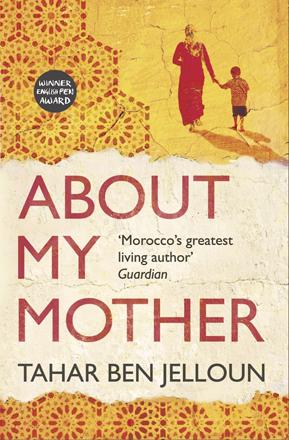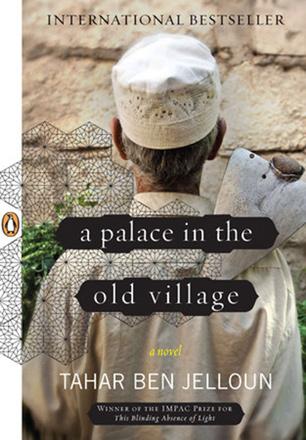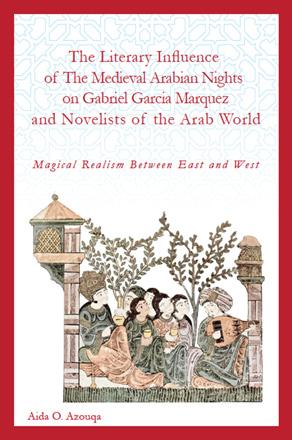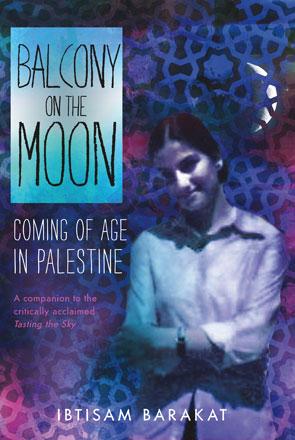You are here
Memories of a past returned
By Sally Bland - Nov 27,2016 - Last updated at Nov 28,2016

About My Mother
Tahar Ben Jelloun
Translated by Ros Schwartz and Lulu Norman
London: Telegram, 2016
Pp. 247
First published in French in 2008, this is Moroccan author Tahar Ben Jelloun’s account of the time spent with his mother in her last years (2000-2007), but that is only half the story. Parallel to his own thoughts and feelings, he records the memories of childhood, marriage and family which she imparts as he sits by her bedside.
By devoting his eloquent prose to his mother, he constructs a memoir of her life, his own childhood and a perspective on Morocco’s past that might otherwise have been lost, for Lalla Fatma was illiterate. Plus, there were many things of which she had never spoken before due to social convention and her desire to smooth relations with others.
Mother and son seem so opposite: she, who had no public life, lived totally within the parameters of family and neighbourhood, and never left Morocco; he, a world renown author living in Europe, travelling widely, and writing about unconventional topics. Yet, “About My Mother” reveals just as much about what they share: a common background in Moroccan customs, a very strong mother-son bond and an intuitive understanding of one another, no matter how different their worldviews and life styles became.
As Ben Jelloun describes his mother, “She’s uneducated but not uncultured, she has her own culture, religious beliefs, values and traditions”. (p. 10)
“Mother’s revisiting my childhood. Her memory’s been toppled, lies scattered over the damp floor. Time and reality are out of kilter”. (p. 1)
Despite having lived in Tangier for decades, Lalla Fatma thinks she is still in post-war Fez, her birthplace and that of her children. She has erased the death of her last husband and talks to the dead, but vividly remembers how a woman noticed her at the hammam and engaged her mother in conversation with the intent of finding a wife for her son. Lalla Fatma was only 15 and still playing with dolls, but this encounter led to the first of three marriages in which she outlived her husbands and had four children, Ben Jelloun being the youngest.
The narrative also covers the time of resistance to French colonialism and the post-colonial opposition to regime repression in the 70s, which led Ben Jelloun to immigrate to France, and made his mother fear that his writing would land them all in trouble.
Love, respect and anguish permeate this memoir, as does Ben Jelloun’s elegant, perceptive prose. One feels one has discovered a key source of the author’s descriptive powers for some of his mother’s ruminations are quite poetic. There is minimal medical information but more about how she perceives her declining health and memory loss. “All these dead people flitting around in my head! It must be the diabetes, it must be all the pills I’ve been taking for such a long time…” (p. 14)
She does not fear death but is plagued by boredom and the fear of being totally dependent on others.
Gradually, sadness and distress take hold of the author in the face of his mother’s decline, her bodily failures, increasing incoherence and final retreat into silence — she who had always cared about her appearance, who had loved light and gathering her family to cook for them. Now, her greatest wish is that they will all be with her at her death, and Ben Jelloun does his best to honour that wish.
He also understands and honours her wish to stay in her own home, even though this involves many hassles, including dealing with a loyal but ornery caretaker who is both Lalla Fatma’s best friend and greatest enemy. All this leads to some introspection: “when the person you love goes missing and time stretches and disintegrates, you look at your own shattered image in that unreliable mirror and scrabble around for happy moments, hoping to fill these cracks in the soul and salvage words from this agonising confusion”. (p. 182)
It also leads him to ponder the differences between Europe and Morocco regarding care of the elderly, writing of Westerners’ propensity to place their parents in old people’s homes: “They blame lack of space, lack of time. They take refuge in easy selfishness, which these same parents will pass on to their children: the wheel keeps turning in the eternal cycle of a modernity that will sacrifice old people even as it seeks to prolong their life expectancy. This paradox is the inevitable result of a society in which the only values celebrated and protected are those of the market”. (p. 52)
Writing this book was surely not an easy task because of the conflicting emotions involved, but one can be glad that Ben Jelloun was up to it. His beautiful, honest account can provide comfort and guidance for an experience that most will go through at some time or another. Amazingly, in such a context, his writing is full of compassion, but devoid of sentimentality.
Related Articles
A Palace in the Old VillageTahar Ben JellounTranslated from French by Linda CoverdaleNew York: Penguin, 2011Pp.
The Literary Influence of the Mediaeval Arabian Nights on Gabriel Garcia Marquez and Novelists of the Arab WorldAida O.
Balcony on the Moon: Coming of Age in PalestineIbtisam BarakatNew York: Farrar Straus Giroux, 2016Pp.


















